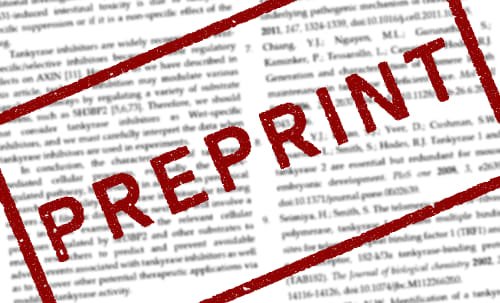The publishing industry has proven to be surprisingly resilient in times of crisis, but it is difficult to predict what it will look like in the post-COVID world. Will publications be more accessible? Will the entire publishing process become more transparent? To answer these questions, the CONP organized an online panel with Heather Joseph, Executive Director of SPARC (Scholarly Publishing and Academic Resources Coalition).
How has the pandemic changed the way we communicate our science?
Мy first job was with the American Astronomical Society in the early 90s, just as the first preprint server was being established. So, for me, preprints were always part of how scientists communicate their work. Pre-internet, preprints were called yellow papers. If you walked through the corridors of the National Astronomical Observatory in Ohio or Tucson and you’d see these yellow sheets of paper and you could rip a copy of early versions of articles. You’d scribble your comments on them, and then shove them under the office door of the author at the end of the day.
It’s been super fascinating to see that urgency cranked up with the coronavirus. I don’t think anybody was ready for the demand for preprints. It’s taken us a long time to get other disciplines to use preprints. But for me, what’s so fascinating is that when the urgency level cranked up, preprints became the default really quickly.
Do you think that the COVID crisis woke up the cultural instinct to share at a very early stage of the research?

I think a lot of it depends on the culture of the specific discipline, but some of it also has to do with the nature of the science being done. In astronomy, a lot of my colleagues would say, we don’t mind sharing our data and insights early because our data is worthless, not in the sense of it being worthless intellectually, but nobody’s going to patent observational data from the Hubble. So, the stakes are different and the incentives are different. I think this is a moment when the utility of the preprints is being showcased and many researchers finally understand that their careers aren’t going to be threatened if they share their insights earlier. Now if we can also start rewarding them for sharing, this will go a long way toward changing the culture of academic publishing.
Lots of people publish a preprint and go talk to the media right away. Is this something we have to be happy or worried about?
To be perfectly honest, I think it’s a little bit of both. Of course, there’s a danger of things swinging too far. We have limited infrastructure for preprints. We have arXiv, medrXiv, biorXiv, but we saw right away that this influx of papers, this flood of papers, really stressed the preprint triaging and quality control systems, so it is difficult to just look and say: Is this a scientific paper? Is it valid? It’s tough enough if you’re a managing editor of a journal to get peer reviewers. And now, you know, to ask folks to turn their attention to do some screening on the preprint servers with this kind of volume is really difficult.

It’s difficult, but I think it’s important, and that’s the piece that might actually pay real dividends as we get past the crisis stage of COVID. Оne of the things that really heartened me was to see publishers like the Royal Society and eLIFE get together and say: it’s super important that we keep these speedy channels for communication open, but that we also place a premium on quality of the materials that are on here. So let’s work together as publishers, who are not going to get any credit for doing this, to put together and encourage a pool of expert peer reviewers and encourage them to work on these articles. And then to make sure that this sort of peer review is feasible, we’ll agree that if we get an article submitted on COVID that comes from a preprint server, and we don’t have the capacity to take it, we’ll seamlessly pass it to another journal, who in normal times might be viewed as a competitor, we don’t care. It’s not about us getting our name out or getting the credit. It’s about solving the problem. And by doing that, they’re putting structures in place, they’re putting examples in place.
The preprint is not a final paper. Do you think that there’s a need to educate both readers and writers of preprints about that?
One of the things that we’re really looking at and we have an opportunity to do is to stop thinking about scientific publishing as the entire conversation of science. Preprints are just an earlier stage of that conversation and the more we can educate folks about that, the better. It’s testing an idea, it’s asking for the community to help strengthen or identify the holes in the argument. We’ve had preprints that have had to be pulled from preprint servers, but it’s different from retracting a paper from a journal.

Open peer review on various platforms has become increasingly normalised with COVID-19 preprints, is this practise here to stay?
I think it’s sort of an emerging cultural norm. Like, we haven’t been encouraged to do this as young researchers, but it’s such a great opportunity. We live for that feedback. I think it’s really hard for people to sometimes put their work out there, unless you’re encouraged to do so and you know that the feedback is going to be helpful and that that’s what the community expects you to do, rather than hanging on to it.
Also, it’s hard to learn how to do peer review properly. But if you have comments that are visible, you can point to a lot more examples of the right way to give constructive feedback on an article. If comments are visible, then you don’t have to be invited to write a full peer review for an article to practice how to do it. You can do it on the things that you feel comfortable contributing to and get experience. To become comfortable and competent as a scientific communicator is something we really want to encourage.
How do you see the evolution of the parallel systems: the official journals and the open arXiv papers with peer review?
And the reason I feel like there’s an opportunity to do this is, again, that sort of urgency in the sense of when COVID hit, the first instinct of scientists who were trying to solve the problem faster was to move into more open platforms for initial conversations and to share as quickly as possible. And they’re doing it.
I don’t think preprint servers are going to supplant journals completely in the near future, if ever. Could they replace some journals? Maybe, we have a lot of journals out there. But I think that they can demonstrate a real value towards visible progress in science. Every government, every funder, every private foundation, every researcher, every sentient being on the planet is watching to see how we can make progress faster. And I think that’s a moment in time we’ve never had before, аnd that could be one of those things that changes how we value the ability to move quicker towards progress.


